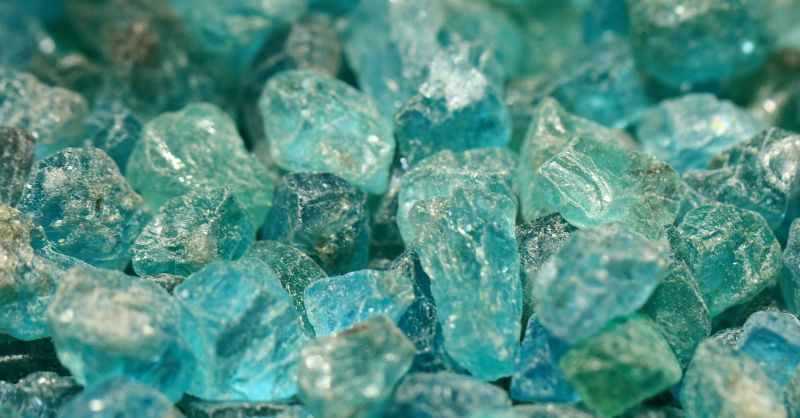Exploring the Global Market for Raw Mineral Materials: Trends, Suppliers, and Trading

The global market for raw mineral materials is a dynamic and vital component of numerous industries worldwide. These materials, commonly referred to as industrial minerals, serve as key inputs for the production of a wide range of products. From construction and manufacturing to electronics and agriculture, raw mineral materials play a crucial role in powering various sectors. In this article, we delve into the fascinating world of raw mineral materials, exploring their suppliers, trading practices, and the trends shaping the industry.
Industrial minerals encompass a broad spectrum of naturally occurring substances, such as limestone, gypsum, silica sand, and clay, among others. These materials are extracted from mines or quarries, processed, and then used as fundamental ingredients in countless applications. Raw mineral materials are essential for construction projects, including the production of cement, bricks, and concrete. They are also indispensable in the manufacturing of ceramics, glass, fertilizers, and chemicals.
The global market for raw mineral materials is supported by a vast network of suppliers, ensuring a steady supply chain. These suppliers are responsible for extracting, refining, and distributing the minerals to various industries worldwide. While the list of mineral suppliers is extensive, a few key players dominate the market. They have established a strong foothold due to their reliable sourcing capabilities, product quality, and competitive pricing.
Mineral trading plays a pivotal role in facilitating the distribution and exchange of raw mineral materials across borders. Traders, acting as intermediaries, bridge the gap between suppliers and end-users, ensuring a smooth flow of materials. Their expertise lies in understanding market dynamics, tracking trends, and identifying potential buyers. The trading process involves negotiation, logistics management, and compliance with international regulations governing the movement of mineral products.
In recent years, the global market for raw mineral materials has witnessed several noteworthy trends. One such trend is the growing demand for sustainable and eco-friendly sourcing practices.
Increasing awareness of environmental impact has led to a shift towards responsible mining methods, including efforts to minimize carbon emissions, conserve water resources, and promote biodiversity conservation. Industry players are actively investing in technologies and initiatives that support these sustainable practices.Another significant trend in the industry is the emergence of digital platforms and technology-driven solutions for mineral trading. Online platforms provide a streamlined approach to connect suppliers and buyers, facilitating efficient transactions. These platforms offer features such as real-time market information, transparent pricing, and secure payment systems, enabling smoother trade interactions. Additionally, technological advancements, such as blockchain, are being explored to enhance supply chain transparency and traceability.
The global market for raw mineral materials is influenced by various factors, including economic growth, geopolitical dynamics, and technological advancements. Fluctuations in global economies can impact demand and pricing. Changes in trade policies, regulations, or political stability of mineral-rich regions can also have ripple effects on the industry. Moreover, advancements in technology, such as automation and artificial intelligence, are transforming mining and processing operations, leading to increased productivity and cost-efficiency.
As businesses across industries continue to rely on raw mineral materials for their operations, the need for efficient sourcing becomes paramount. Companies must engage in strategic sourcing practices, diversify their supplier base, and establish long-term partnerships. This not only ensures a stable supply but also mitigates the risks associated with price volatility and disruptions in the market.
The global market for raw mineral materials plays a critical role in supporting various industries. As the demand for industrial minerals continues to rise, suppliers and traders are adapting to meet the evolving needs of the market. Sustainable sourcing practices and technological advancements are reshaping the industry, fostering transparency, efficiency, and responsible stewardship. With a keen eye on market trends and a focus on strategic sourcing, businesses can navigate the complex landscape of raw mineral materials and thrive in a competitive global marketplace.
Previous Story
- Uniform and Workwear Market: A Closer Look
- Printing Machinery Market is expected to reach USD...
- China's electric car market becomes a challenge for...
- CES 2022: Colour changing cars and remotes that...
- Asian shares mixed after tech-led decline on Wall...
- Fed officials now seeing U.S. job market near...
- Availability of cotton, rising prices worry textile industry
- British mortgage approvals sink to lowest level since...